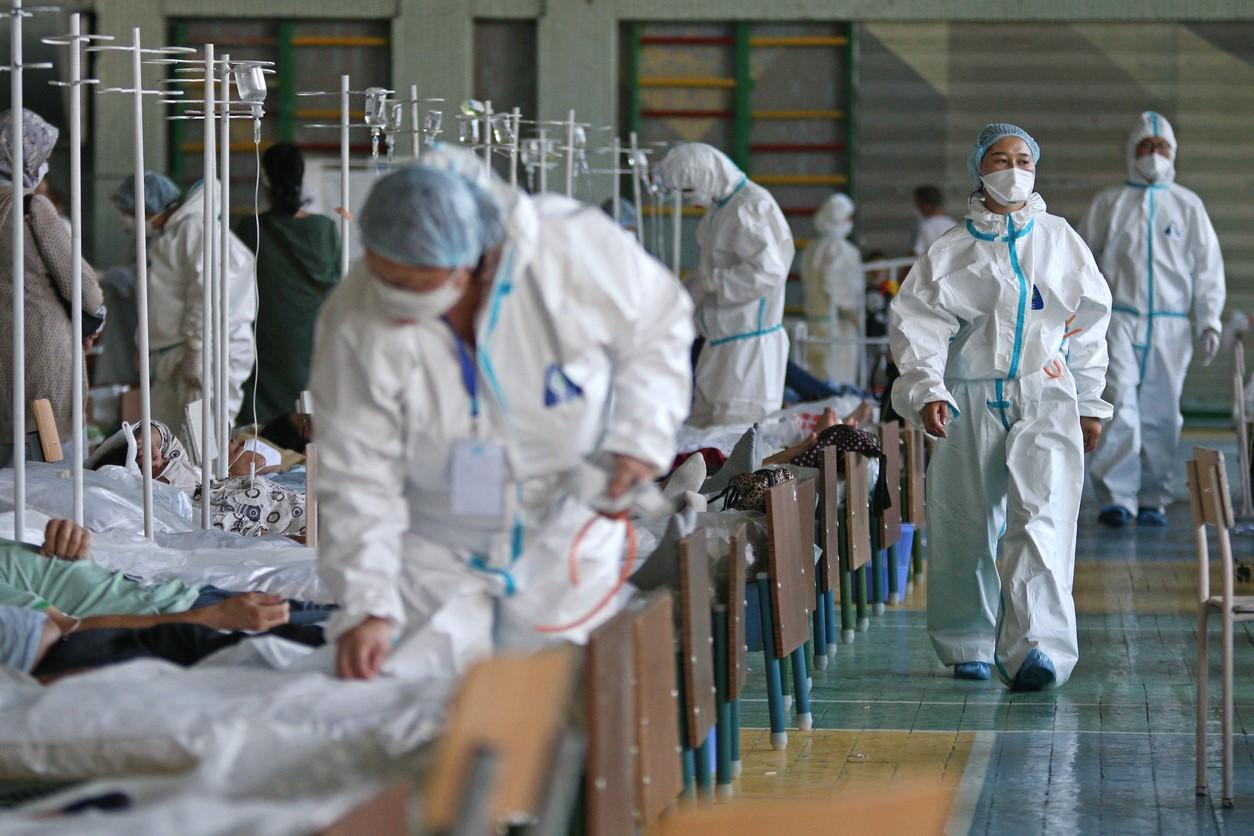A new systematic review of 32 clinical practice guidelines (CPGs) for severely ill COVID-19 patients reveals that most were of poor quality, with few reporting funding sources or conflicts of interest, employing a methodologist, describing a search strategy or study selection process, or synthesizing evidence.
The review, published in JAMA Network Open, was conducted by a team led by University of Toronto researchers from Dec 14, 2020, to Feb 28, 2021.
The team evaluated clinical guidelines on drug treatments for hospitalized COVID-19 patient against the National Academy of Medicine's (NAM's) eight criteria for trustworthiness. Teams of two reviewers independently judged guideline quality using the 15-item National Guideline Clearinghouse Extent of Adherence to Trustworthy Standards (NEATS) tool.
The researchers defined rigorous CPGs as systematically created statements and recommendations that delineate the roles of diagnostic tests and treatments to help healthcare providers and patients make good care decisions. "The process for creating guidelines affects CPG quality," they wrote. "In turn, CPG quality affects patient care, safety, and health care equality."
Methodologists, larger collaborations needed
Of the 32 studies, 78.1% were developed by professional societies, and 62.5% were written by authors from a single World Health Organization (WHO) region, mostly from the United States or Europe. Roughly half were of international scope, while the remainder were national.
Of the guidelines, which the researchers said were weak overall, only 21.9% reported funding sources, 37.5% reported conflicts of interest, and 15.6% included a methodologist, detailed a search strategy or study selection process, or synthesized the evidence.
While 14 CPGs (43.8%) made treatment recommendations or suggestions, few rated their confidence in the quality of the evidence (18.8%), described potential treatment benefits or harms (18.8%), or graded the strength of the recommendations (15.6%). External review, patient or public perspectives, or a process for updating the guidelines were included only rarely.
Recommendations were inconsistent for most COVID-19 pharmacologic treatments, including antibiotics, corticosteroids, antimalarials, and antivirals. The CPGs evolved as the COVID-19 knowledge base accumulated, favoring the use of corticosteroids and turning away from the use of antibiotics, antimalarials, and antivirals.
High-quality guidelines tended to be published later in the pandemic, and updates of CPGs published earlier were also of better quality than the originals.
"Approaches that prioritize engagement of a methodologist and multidisciplinary collaborators from at least 2 WHO regions may lead to the production of fewer, high-quality CPGs that are poised for updates as new evidence emerges," the study authors wrote, adding that journal editors should require the use of at least one CPG appraisal instrument at manuscript submission.
The researchers noted that many CPGs for COVID-19 were likely hastily compiled given the urgent clinical need for guidance soon after the emergence of the novel coronavirus. "Nonetheless, strong methodologic standards for CPGs are essential to avoid promulgating useless or potentially harmful treatments and wasting health care resources," they wrote.
Clear guidance is highest priority
In a related commentary, Karina Davidson, PhD; Catherine Alfano, PhD; and Felicia Hill-Briggs, PhD, all of the Feinstein Institutes for Medical Research in New York, said that despite the difficulty of unraveling the drug treatments that help COVID-19 patients from those that don't work or are harmful, clear guidance is desperately needed.
"When clinicians receive conflicting recommendations about using specific treatments for patients with COVID-19, patient progress is harmed, conflicts among treating multispecialty care teams ensue, and clinical opinions and single-case outcomes continue to influence clinical practice," they wrote. "Most existing clinical management guidelines about treating COVID-19 contribute to rather than solve these problems."
Davidson and colleagues pointed to two CPGs they called especially useful, both published and updated by the WHO. One is a guideline on drugs for COVID-19 patients, and the other is on the antiviral drug remdesivir.
"Ongoing high-quality efforts to disseminate guidance is needed as the creation of trustworthy clinical management guidelines is one of the highest priorities, especially during medical and public health crises and when evidence bases are quickly accumulating," they concluded.





















